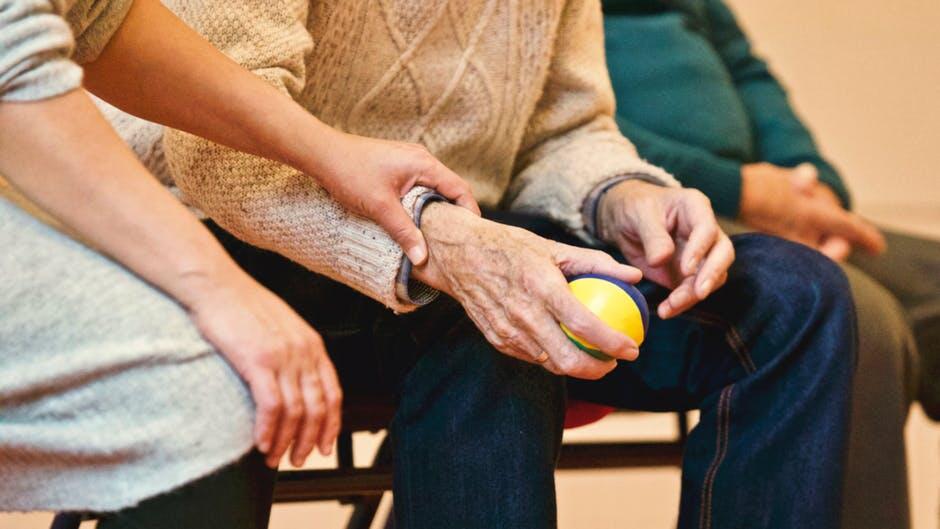
Understanding the Legal Rights of Residents After Nursing Home Abuse
Nursing home abuse is a terrible act that breaks the trust of residents and their families. Here are the legal rights for residents in this position.
Nursing homes should be safe havens for seniors seeking long-term care. Oftentimes, the decision to enter a nursing home or care facility is difficult for both seniors and their loved ones. Nursing home abuse statistics can make the decision feel even more daunting.
An estimated 10% of seniors (people ages 60 and older) suffer from some form of elder abuse. It is commonly believed that the rates of elder abuse are higher in nursing home environments.
If you or a loved one sustained nursing home abuse, what are the next steps? Read on to learn about the legal rights of residents after nursing home abuse.
What Rights Do Nursing Home Residents Have?
Oklahoma state law protects the rights of seniors in nursing homes and other types of care facilities and arrangements. These rights include:
- Civil liberties (e.g., freedom of religion)
- Respectful treatment (e.g., reasonable accommodations)
- Freedom from mental and physical abuse
- Private communication (e.g., private phone calls)
- Medical care (including refusal of treatment under many circumstances)
- Medical privacy
- Personal belongings (i.e., use and storage)
- Filing complaints without fear of punishment
- Spousal visits
- Financial management (unless granted legally to a third party)
If a nursing home staff member denies a resident any of these rights, it likely constitutes a legal violation. However, it may not inherently constitute nursing home abuse.
Our Team Is Here To Assist You Every Step Of The Way.
SPEAK TO AN ATTORNEY TODAYWhat Constitutes Nursing Home Abuse?
When we’re talking about nursing home abuse, we’re talking about direct or indirect harm to a nursing home resident perpetrated by one or more staff members. This may include:
- Emotional abuse (e.g., yelling at or humiliating a resident)
- Physical abuse
- Sexual abuse
- Financial abuse (e.g., unauthorized bank account withdrawals)
- Neglect or abandonment
Neglect is a common form of indirect abuse. This occurs when a nursing home fails to provide the standard duty of care to a resident. Signs that your loved one is being neglected in a nursing home include things like worsening hygiene, weight loss, confusion, and new health problems.
Many residents aren’t sure how to classify the treatment they’re receiving or aren’t able to communicate what’s happening to them when loved ones aren’t around. Learn more about the types of nursing home abuse that occur.
Steps to Take After Nursing Home Abuse Occurs
It can be extremely distressing to face abuse or realize that your loved one is facing abuse. Unfortunately, many seniors aren’t sure what to do about nursing home mistreatment. Here are some of the steps to take to defend your rights and seek justice.
File a Complaint
Even if you simply suspect abuse in a residential care home, it’s important to file a complaint with the Oklahoma state government. This will open the door to an official investigation.
Filing a complaint with the state won’t lead to the full compensation a victim deserves. However, it can lead to the perpetrator’s loss of employment and criminal charges, protecting future residents from facing mistreatment.
Hire an Experienced Attorney
Before you file your nursing home abuse claim, we encourage you to seek legal counsel. This is also the case if you’re filing a nursing home wrongful death claim on behalf of a loved one.
In the aftermath of nursing home abuse, you and your family deserve to focus your attention on things like medical and therapeutic care, as well as potential rehoming. Hiring an attorney relieves you of the additional duty of taking on a legal case alone. An experienced nursing home abuse and injury lawyer can navigate your claim in a way that improves your chances of securing compensation.
File a Nursing Home Abuse Claim
In order to file a successful nursing home abuse claim, you will need to establish that:
- The nursing home owed the victim the standard duty of care
- The nursing home breached that duty of care via abuse or negligence
- The abuse or negligence caused the victim’s physical and/or mental injuries
- These injuries created significant financial strain
In your claim, you’ll include the amount of compensation you are demanding from the defendant. Hiring an attorney before you file your claim ensures that you have expert guidance from the start. An attorney will ensure that you itemize all damages to demand the maximum compensation possible.
Compile Evidence
During the claims process, you will need to present evidence of your claims. Your attorney will assist you in this process by requesting all pertinent evidence and helping to secure useful records. This can include things like:
- Relevant medical records
- Witness testimony
- Photo and video evidence
- Nursing home policies
- Past claims or records of safety breaches
- Expert witness testimony
The defense team will compile their own evidence in an attempt to disprove your claims. An attorney can oversee any communication you have with the defense and protect you from providing information that could undermine your claim.
Nursing Home Abuse Claim Compensation
Nursing home abuse claims fall under civil law, not criminal law. The goal is to seek justice in the form of financial compensation, rather than a prison sentence or government fines.
An experienced attorney will exhaust all potential damages when calculating compensation demands. Types of damages include:
- Related medical bills (existing and future)
- Relocation expenses
- Financial losses and setbacks
- Pain and suffering
- Diminished quality of life
Some of these damages are tangible, meaning that they are already financially quantifiable. For example, you can easily prove how much you’re owed in existing medical bills or relocation expenses. Other damages, like pain and suffering, are intangible, and you’ll want an experienced attorney to use legal expertise and case precedent to quantify them.
Call BDIW for Nursing Home Abuse Support
If you or a loved one have faced nursing home abuse, it’s understandable to feel lost or confused. It’s important to know your rights, both to dignified care and to file a claim when that care has been breached.
BDIW has years of experience working with injury and neglect victims in OKC, Tulsa, and surrounding areas. We’ve won millions for our clients and operate with complete financial transparency. If you don’t receive compensation, you don’t owe us a cent.
Request a free case consultation today to learn more about your options moving forward and how we can help.










